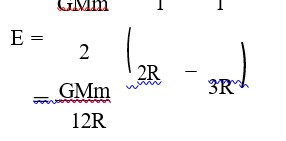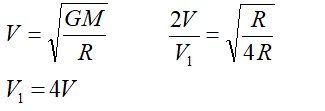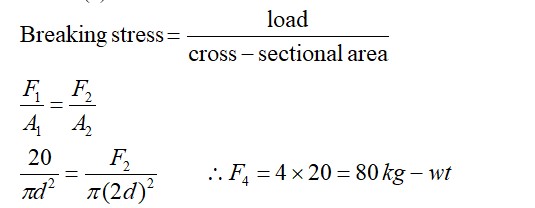Two identical particles of mass 1 kg each go round a circle of radius R, under the action of their mutual gravitational attraction. The angular speed of each particle is:
Two identical particles of mass 1 kg each go round a circle of radius R, under the action of their mutual gravitational attraction. The angular speed of each particle is:
Option 1 -
√( (1/2) * (G/R³) )
Option 2 -
√( (1/2) * (G/R³) )
Option 3 -
√( (1/2R) * (1/G) )
Option 4 -
√(2G/R³)
-
1 Answer
-
Correct Option - 3
Detailed Solution:F = Gm²/ (2R)² = mω²R Given m = 1kg
⇒ ω² = Gm/ (4R³)
⇒ ω = (1/2)√ (G/R³)
Similar Questions for you
Due to Interference, soap bubble appears coloured.
Value of 'g' increases at the equator when earth suddenly stops rotating.
Taking an Exam? Selecting a College?
Get authentic answers from experts, students and alumni that you won't find anywhere else
Sign Up on ShikshaOn Shiksha, get access to
- 66k Colleges
- 1.2k Exams
- 681k Reviews
- 1800k Answers



